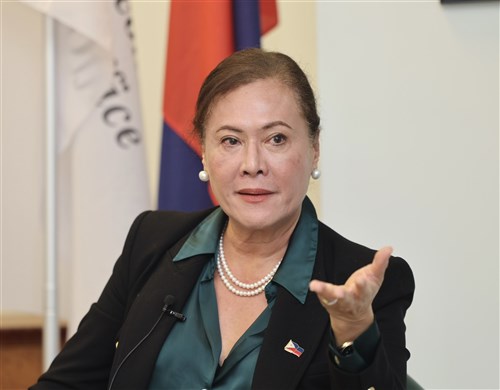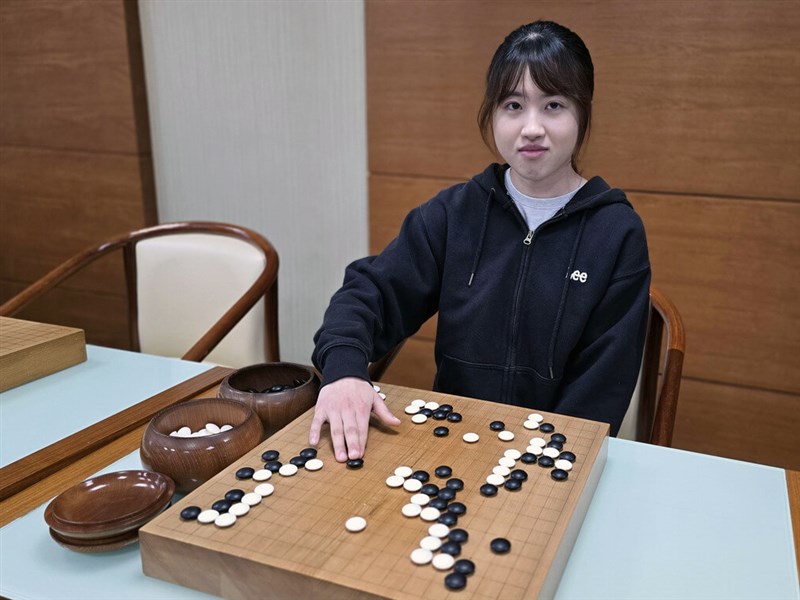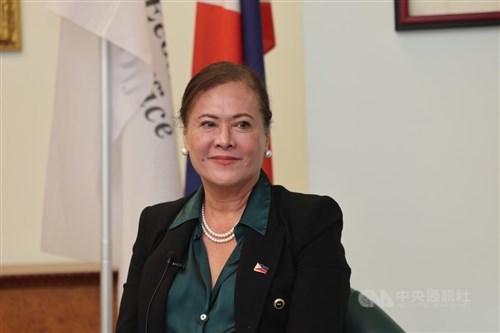INTERVIEW / 'Taiwan Travelogue' translator proud to bring Taiwan to the world
11/29/2024 03:52 PM
Novelist Yang Shuang-zi (楊双子) made history on Nov. 20 when she became the first Taiwanese author to win a U.S. National Book Award. Her groundbreaking achievement would not have been possible, however, without a skillful translation.
(Full text of the story is now in CNA English news archive. To view the full story, you will need to be a subscribed member of the CNA archive. To subscribe, please read here.)
More in INTERVIEW
-
![Philippines envoy urges crackdown on 'bad brokers,' backs direct hiring center plan]() Philippines envoy urges crackdown on 'bad brokers,' backs direct hiring center planThe Philippines' top envoy to Taiwan said authorities on both sides should crack down on unscrupulous brokers who overcharge migrant workers, and welcomed Taiwan's plan to open its first overseas direct recruitment center in Manila as a way to foster competition.02/17/2026 02:48 PM
Philippines envoy urges crackdown on 'bad brokers,' backs direct hiring center planThe Philippines' top envoy to Taiwan said authorities on both sides should crack down on unscrupulous brokers who overcharge migrant workers, and welcomed Taiwan's plan to open its first overseas direct recruitment center in Manila as a way to foster competition.02/17/2026 02:48 PM -
![Transcending runner-up label: Go player Yang Tzu-hsuan's not-too-late comeback]() Transcending runner-up label: Go player Yang Tzu-hsuan's not-too-late comebackAmong women currently active on Taiwan's professional Go circuit, six-dan pro Yang Tzu-hsuan (楊子萱) stands out as one of the board game scene's most representative figures.02/16/2026 10:52 AM
Transcending runner-up label: Go player Yang Tzu-hsuan's not-too-late comebackAmong women currently active on Taiwan's professional Go circuit, six-dan pro Yang Tzu-hsuan (楊子萱) stands out as one of the board game scene's most representative figures.02/16/2026 10:52 AM -
![Filipino workers' well-being, investment ties top priorities: Envoy]() Filipino workers' well-being, investment ties top priorities: EnvoyCorazon Avecilla-Padiernos, the Philippines' new top envoy to Taiwan, said her priorities are safeguarding the well-being of Filipino workers in Taiwan and deepening economic ties between the two sides.02/13/2026 05:51 PM
Filipino workers' well-being, investment ties top priorities: EnvoyCorazon Avecilla-Padiernos, the Philippines' new top envoy to Taiwan, said her priorities are safeguarding the well-being of Filipino workers in Taiwan and deepening economic ties between the two sides.02/13/2026 05:51 PM
Latest
-
Society
Taipei restaurant ordered to close after diners fall ill
02/18/2026 11:25 PM -
Politics
Lai congratulates Takaichi on reelection as Japan PM
02/18/2026 10:09 PM -
Politics
NGO calls for overseas missions to use 'Taiwan' instead of 'Taipei'
02/18/2026 07:49 PM -
Society
Temperatures to rise Thursday as cold air weakens
02/18/2026 07:29 PM -
Politics
Calls for Six Assurances law after Trump Taiwan arms comments
02/18/2026 07:16 PM


